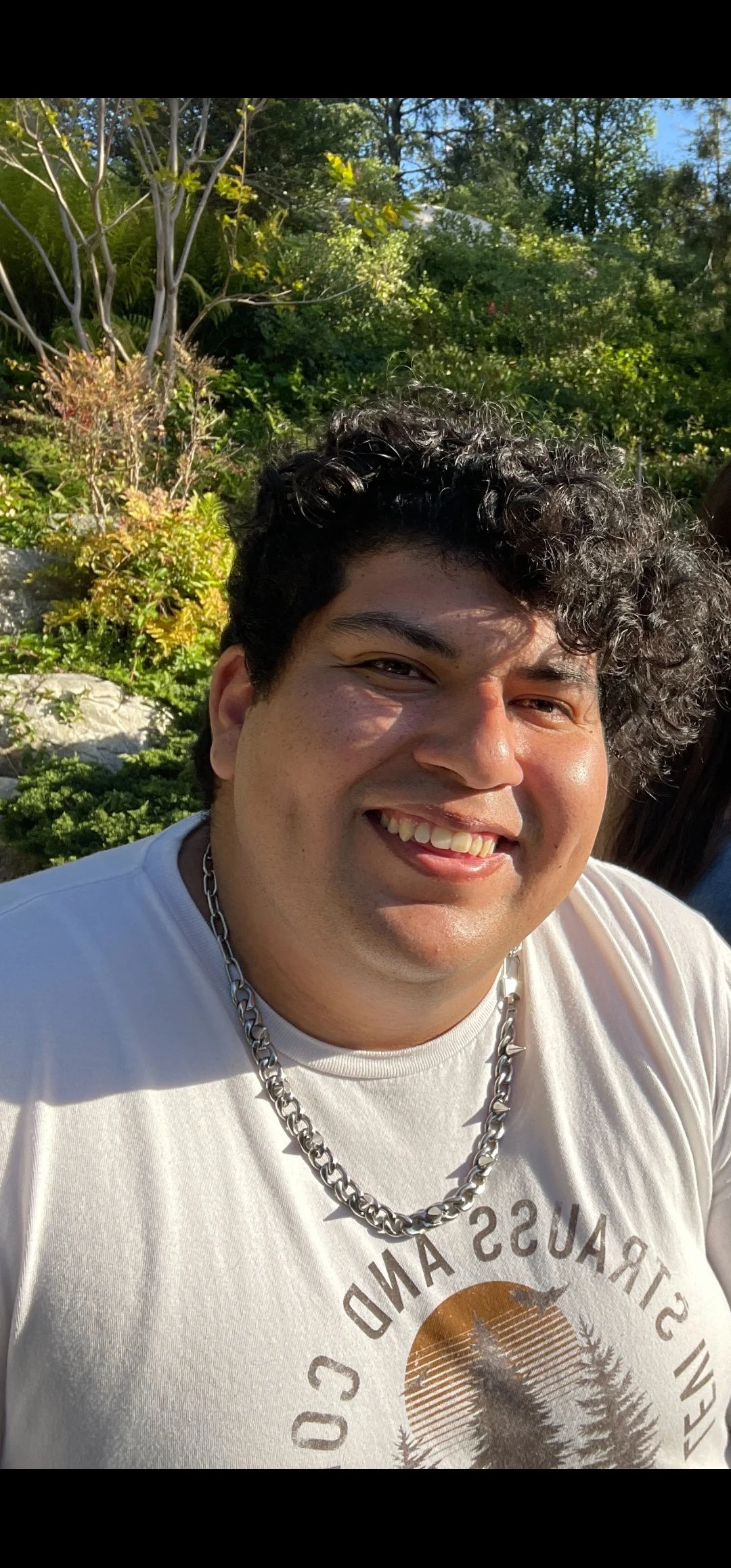Community Research Group Members
Gabriella Cawley, Graduate Student
Gabriella Cawley is a doctoral student in Psychology at Georgetown University. She is pursuing a concentration in Human Development and Public Policy and is concurrently enrolled in the McCourt School's Master of Public Policy program. Prior to her graduate studies, she earned a BS in Human Development with Distinction from Cornell University. Her research interests lie at the intersection of psychology and the law, including such topics as risk taking in adolescence, developmentally appropriate practices in juvenile justice, and community-based justice initiatives.
Cesar Perez, Lab Manager
Cesar is the current Lab Manager for the Community Research Group, they attended the University of California Riverside, where they graduated with a Bachelor of Arts in Psychology. Cesar’s research interests focus on how real-world social dynamics shape emotional development and regulation, particularly within underserved and underrepresented communities. Specifically, they are interested in how community environments and support systems promote the development of adaptive emotion regulation strategies, linking individual emotional development to broader social and community contexts.
Mara Lewis, LaidLaw Scholar
Mara is a junior in the College of Arts and Sciences majoring in Psychology with a minor in Education, Inquiry, and Justice. She is currently involved in the Protective Orders Project and working on an independent research project funded by the Laidlaw Foundation. Her project will examine the dynamics of cross-filing in Civil Protection Orders, with a focus on legal abuse and barriers to justice within the civil court system. She hopes her project will contribute to making the CPO filing process more equitable.
Kate Loughran, thesis student
Kate is a senior from Westchester, NY, studying Psychology and Philosophy & Bioethics in the College of Arts and Sciences. Kate is passionate about the intersection of psychology and the law, and is committed to improving the justice system and advocating for those who fall victim to it. Currently, Kate is both a research assistant and a thesis student in the lab.
Lucy Shreves, Research Assistant
Lucy is a fourth-year research assistant from New Mexico. Lucy studies Psychology, Government, and Justice and Peace Studies in the College of Arts and Sciences. She is particularly interested in researching those who are underserved by the legal system, especially the high number of wrongfully incarcerated individuals in the United States. After graduation in the Spring, Lucy plans to attend a Master's program in Forensic Psychology, specializing in wrongful convictions.
Zoe Wen, Thesis Student
Zoe Wen is a third-year student at Georgetown University studying government, psychology, and statistics. She is interested in the intersection of law, advocacy, and policy and how to achieve equitable and sustainable change through an interdisciplinary approach that recognizes systemic inequities and individual-level factors. She is passionate about learning from and collaborating with impacted communities and individuals to improve existing institutions and build equitable solutions from the ground up.
Mackenzie Holian, Research Assistant
Mackenzie is an undergraduate student on a pre-law track with a focus on psychology, justice and peace studies, and criminal justice. She is particularly interested in how systemic inequalities, political behavior, and legal systems shape modern discourse and justice. Mackenzie is simultaneously pursuing her master's degree here at Georgetown in Communication, Culture, and Technology to explore digital media, leadership, and conflict prevention, aiming to bridge psychological science with real-world policy and advocacy.
Miriam Woods, Research Assistant
I'm a sophomore studying Psychology and Economics with a strong interest in the intersection of these fields, particularly in how individuals interact with social systems, including the legal system. In the future, I hope to work on policy initiatives that enhance resources for underserved communities and foster greater trust in government.







